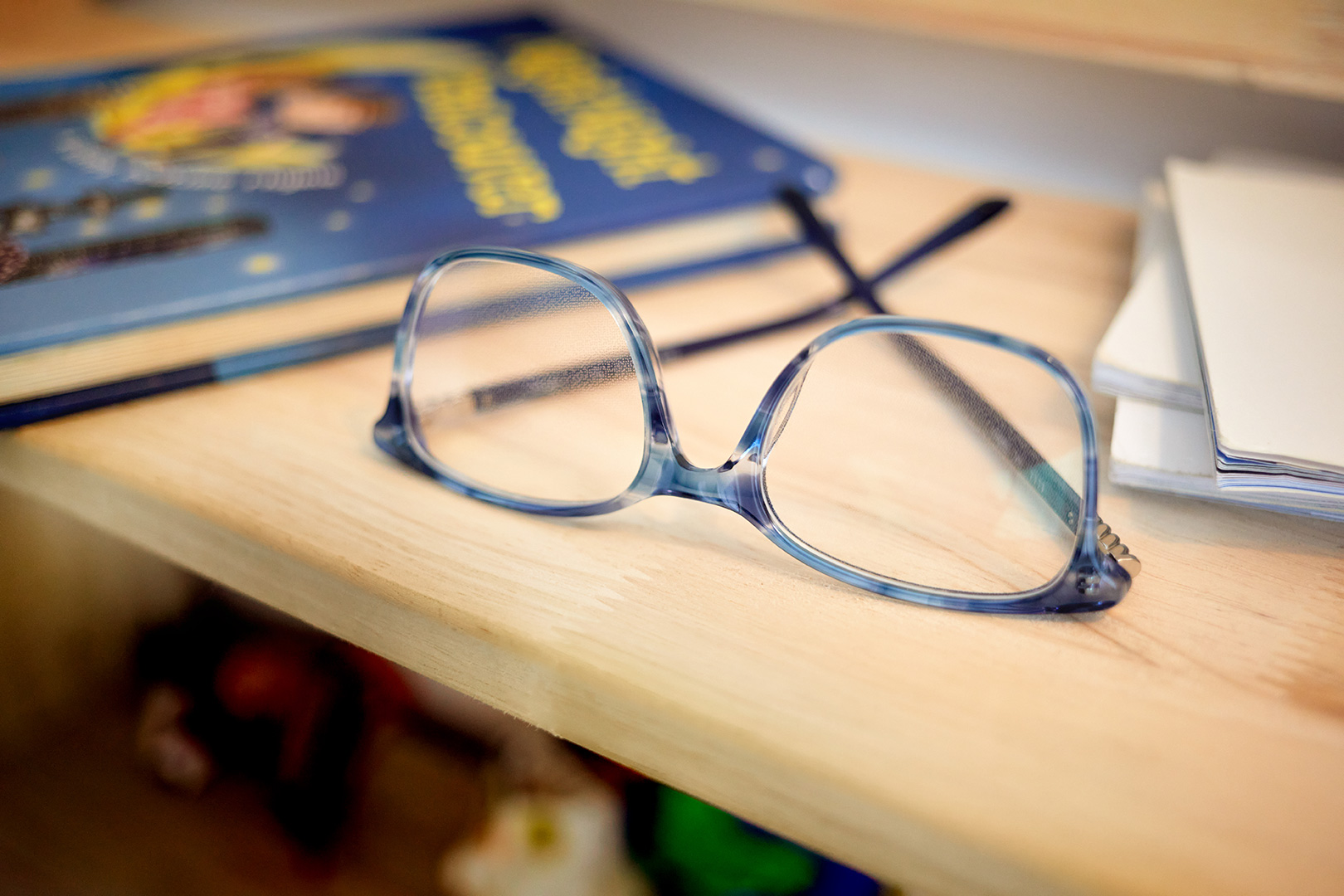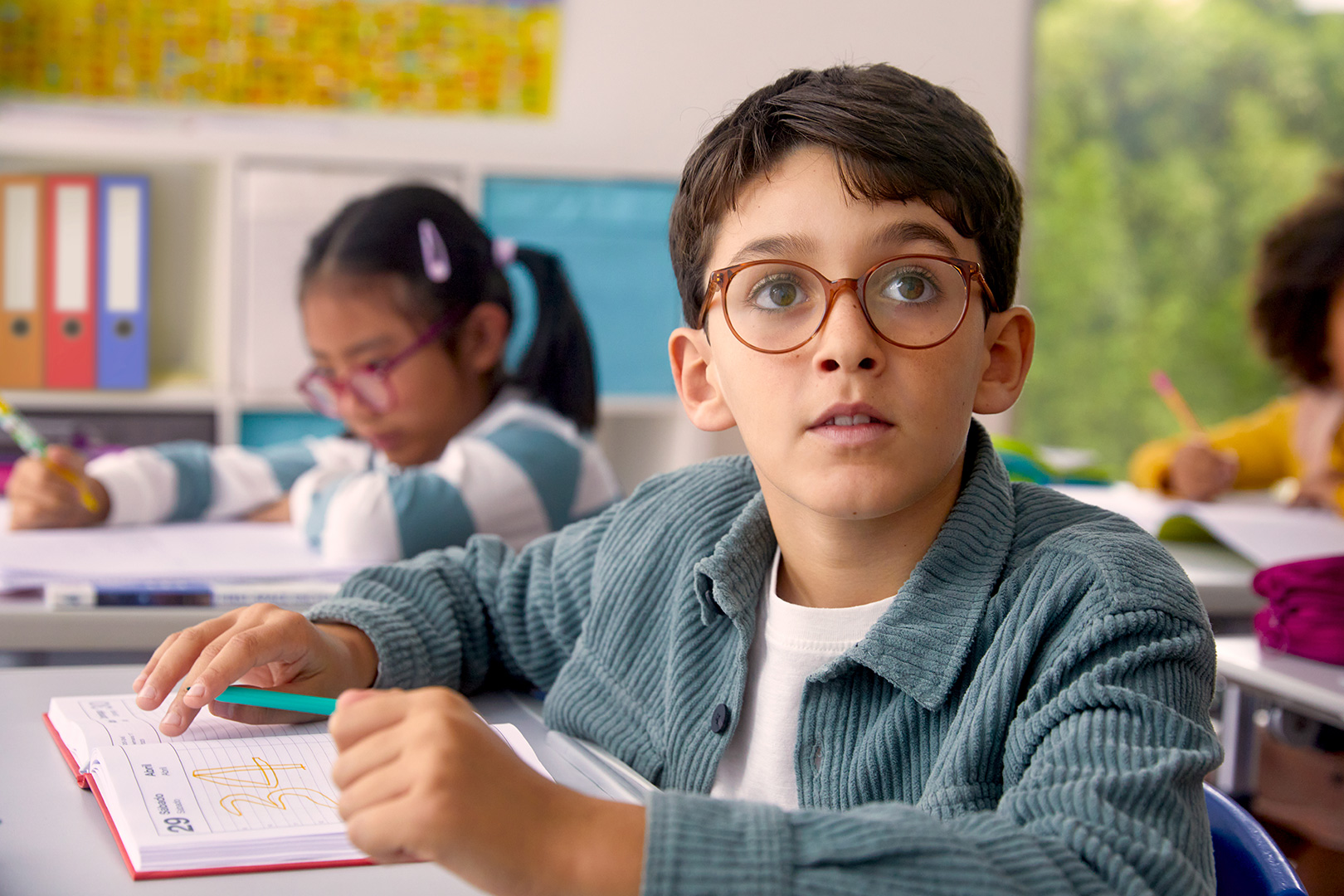
5 signs you need to visit your kid’s optometrist!

5 signs you need to visit your kid’s optometrist!
As a parent, there are a million and one things to worry about, some essential, some trivial. But one thing that should never be ignored is the health of your child’s eyes. Undetected vision problems can hold your child back at school or while playing sports and can contribute to low self-esteem and other behavioral problems. We’ve put together a list of 5 key signs that are cause for concern. If you observe any of the following symptoms, either individually or in combination with others, be sure to book an appointment with your kid’s eye care professional as soon as possible to try and establish the cause.
Is your child getting close-up to things?
It’s a well-worn cliche that kids love sitting too close to the TV whenever their favorite program is on. But if you suddenly notice your child is getting even closer to the screen than usual, it could be a sign that they are struggling with seeing from a distance.
What to look out for
Look out for your child sitting close to the TV, or closer than usual. If they’re holding their books and electronic devices close to their face, or hunching over schoolwork, that could also be a sign that they are having trouble seeing from a distance.
What it could indicate
These are all potential signs of myopia. While congenital myopia is present from birth, early onset myopia can occur at any time during childhood, so it is best to watch out for potential signs and identify them as quickly as possible.
Does your child often squint?
As a parent you’re going to know your child better than anyone so you’ll be the first to notice any unusual changes in behavior or body language, such as squinting in order to see more clearly. This could be the sign of an eye problem.
What to look out for
Does your child keep closing or covering one eye? Have you noticed them repeatedly rubbing their eyes, blinking or squinting? Or maybe they keep tilting the head? If you notice any of these behaviors it would be a good idea to visit an eye care professional.
What it could indicate
Changes in behavior, such as those listed above could suggest that your child has myopia.
Does your child have a lack of focus?
If your child seems to have trouble concentrating at home or at school then eye problems could be the cause. It may seem surprising but if your child is constantly daydreaming or having difficulty maintaining attention, those could be signs that they’re struggling with an eye problem.
What to look out for
Watch out for your child seeming less focused than usual. Maybe they don’t seem to be enjoying school so much, or showing less interest in books when they’re home. Does your child seem to be missing common developmental milestones? Are they below the standard reading or writing age? Perhaps they seem to be reading more slowly, or with reduced fluency. These could all be signs that there’s a problem.
What it could indicate?
If they have trouble seeing the board or reading then myopia or hyperopia (far sight) could be the problem. Convergence Insufficiency (CI) which affects near vision and eye muscle coordination and could affect your child’s ability to focus on close up objects such as a book, or computer, could also be an issue.
Is your child complaining of headaches or blurred vision?
All children get headaches from time to time, but if they happen on a regular basis you should visit your eye care professional asap. Headaches are one of the most common indicators that your child might need glasses.
What to look out for
If your child is getting more than occasional headaches that is a cause for concern. Likewise if they say they feel dizzy or have blurred vision that also suggests they may have a problem with their eyes.
What it could indicate
Headaches can be a sign that your child is suffering from myopia or hyperopia (far sight) as they’re going to be straining to see clearly. Blurred vision can also be a sign of these conditions.
Is your child acting clumsy or showing problems with hand-eye coordination?
Have you noticed that your child is frequently falling over or bumping into things? Do they seem to lose their balance when they are playing or miss things when they try to grab hold of them? It’s not unusual for a child to be a bit clumsy from time to time but if it’s happening on a regular basis that could be a cause for concern.
What to look out for
If your child is being unusually clumsy or showing a lack of coordination it could suggest a problem with their sight and 3D vision.
What it could indicate
Clumsiness or a lack of coordination could point to a number of potential problems including myopia, double vision or amblyopia. Convergence Insufficiency (CI) could be another potential cause of clumsiness.
The solution to slow myopia’s progression
If your child has been diagnosed with myopia there are now treatment options that can slow its progression. A study has shown that SightGlass Vision’s Diffusion Optics Technology™ (DOT) lenses have proven effectiveness in children as young as 6 years old (1). The earlier your child begins wearing DOT lenses the more effective they are likely to be!
Conclusion:
As you have seen, there are a number of signs, some of them quite surprising, that could indicate your child has a problem with their vision. If you think your child might have a problem, the first course of action should always be to visit your child’s eye care professional so they can organize a thorough exam in order to discover any problems.
If your child is diagnosed with myopia and you would like to find out more about our unique Diffusion Optics Technology™ lenses, then contact our experts or ask your eye care professional for more information.
—–
(1) Joe Rappon, Carol Chung, Graeme Young, Christopher Hunt, Jay Neitz, Maureen Neitz, Thomas Chalberg: Control of myopia using diffusion optics spectacle lenses: 12-month results of a randomised controlled, efficacy and safety study (CYPRESS)

